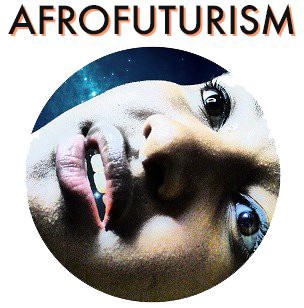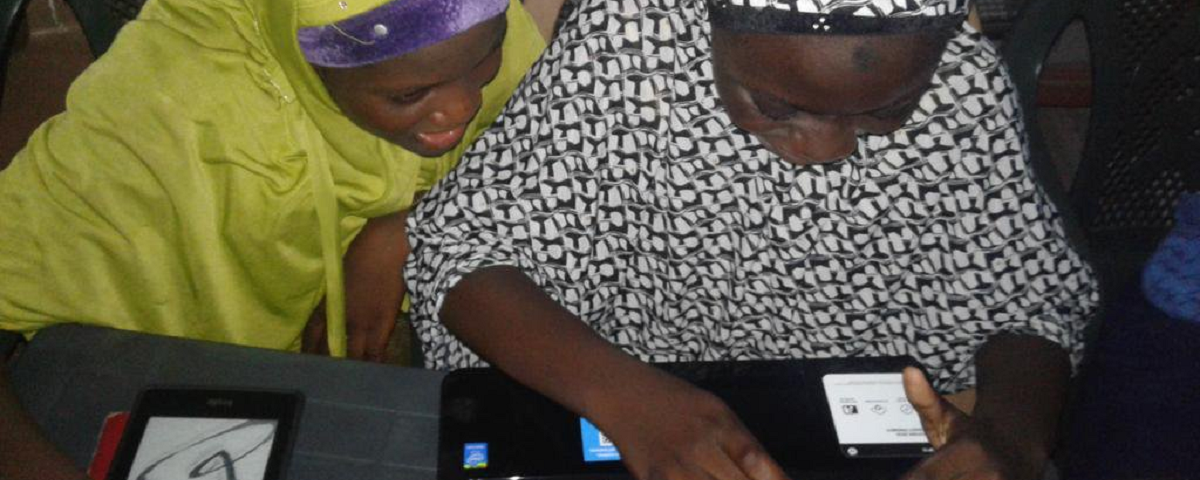
As part of our Afrofuturism coverage, we’re featuring interviews with makers, artists, and thinkers from around the world. Afrofuturism is not just an aesthetic–it’s just as much a framework for activism and imagining new technologies. We’re interested in how the movement can make a practical difference in the lives of those from whom the thought culture draws.

Achievers Ghana is an IT education initiative based in Accra, Ghana’s capital. We were pleased to speak with co-founder Amadu Mohammed about how he and his students are working to make sure everyone has the opportunity to learn computer skills, regardless of gender or background.

Florence Okoye: Welcome! Shall we start with you telling our readers about yourself?
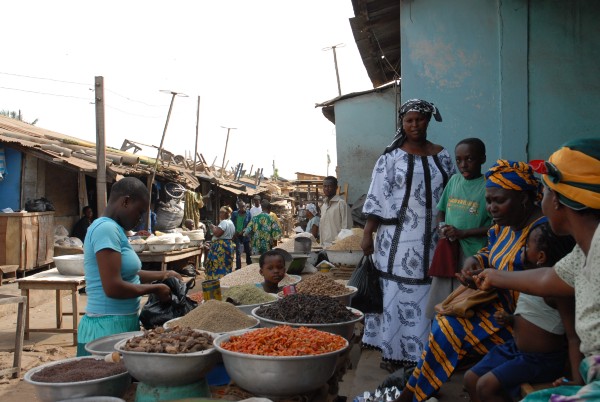
Amadu Mohammed: My name is Amadu Mohammed, co-founder and director of Achievers Ghana Education (NGO). I am a Ghanaian and was born and brought up in Nima and Maamobi, where I still live. Nima is a suburb in Greater Accra and one of the biggest slums in the country. I am currently working to ensure girls have a right to education in the slums of Ghana.
FO: What motivated you to work in girls’ education?
AM: Growing up in abject poverty at Nima and Maamobi slums, suburbs of Accra. Due to financial challenges, I couldn’t go to senior high school after completing junior high. My mother, who was a porter in the Accra market, motivated me and paid my fees to have extra classes so I could sit [for] the West African Senior Secondary Certificate Examination (WASSCE). After passing my exams, I went to Accra Polytechnic to read HND Accounting. My mother was my source of inspiration and made me who I am today. She was the one who insisted I go to school, and out of my seven siblings, I am the only one to go to school despite strong opposition from the family.
FO: How did you start Achievers Ghana?
AM: It started when I was posted to do my national service as a pupil teacher after my HND. One of my students, 12-year-old Amina Ismail Daru, stopped coming to school for two weeks. No one could tell me why, so I had to get involved.
She told me that her uncle was going to marry her to a man who lived abroad, whom Amina had neither seen nor heard of. She was devastated and her crying touched my heart. It made me remember my dear mother, who also faced the same plight, and in the end suffered to raise her children.
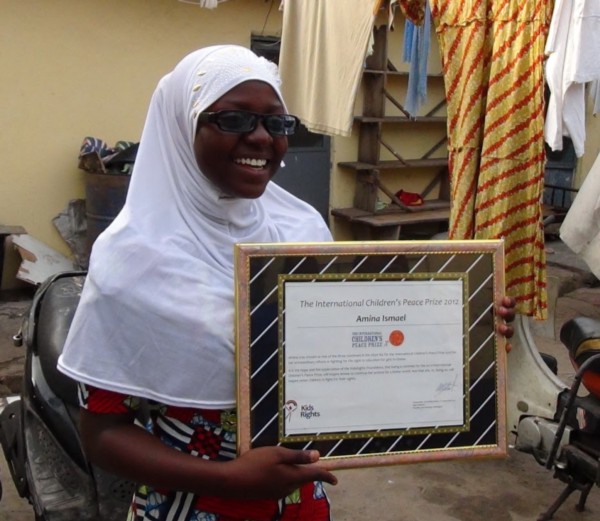
When some colleagues and I went to her family home to verify the story, we found it was true and that Amina would not be able to come to school. We initially wanted to get the authorities involved but were advised to talk with her uncle directly. Upon meeting her uncle, he told us that some man had been taking care of Amina’s upbringing and her educational expenses with a promise to marry her. I took it upon myself to seek support to send Amina to school.
FO: Can you tell us about the rest of the team you were working with?
AM: At first it was myself, some of my friends, university graduates posted as teachers for their national service–but they left when their terms ended. I don’t know where they are now. They really inspired me with the level of commitment they showed beyond their national assignments, caring and sharing Amina’s situation and rescuing her from falling as a victim of child marriage.
FO: What were the main challenges in setting up Achievers Ghana?
AM: Setting up Achievers Ghana has never been easy, especially in a society where a girl child is considered a man’s property. [Men] think that she does not need to learn any employable skills, because she will get married and be taken care of by someone.
Education for a girl child is not a priority and girls are always relegated to the back. They’re not allowed to make decisions for themselves, and everything about them is decided by their parents or by their husband. Early girl-child marriage is a norm–in fact it’s celebrated in many families. Achievers Ghana faced and continues facing challenges in such a society.
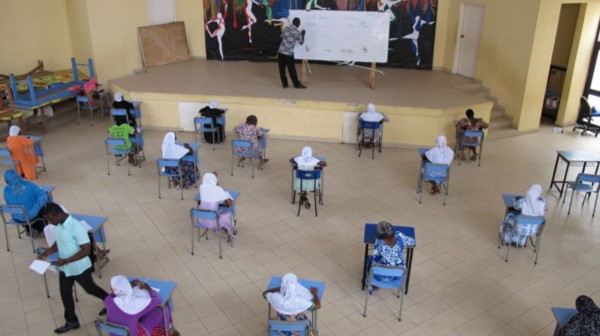
One of the major challenges is changing people’s perception. We always get asked, “Why give a girl child education and more, especially a higher level education?” To them, a girl is supposed to be respectful and submissive to all in the family, and if she is married she has to be submissive to her husband and the husband’s family. [Girls] have no chance to improve or develop themselves.
FO: Now that Achievers Ghana has been set up, what are the major issues apart from social prejudice?
AM: The biggest challenges we now have is infrastructure. Giving the students scholarships, mentorship and leadership training, career skill-development and community advocacy have really helped to reshape the minds of some parents with respect to the importance of a girl’s education. However, as the number of students grows, it poses increased demands–like needing more facilities to help accommodate them.
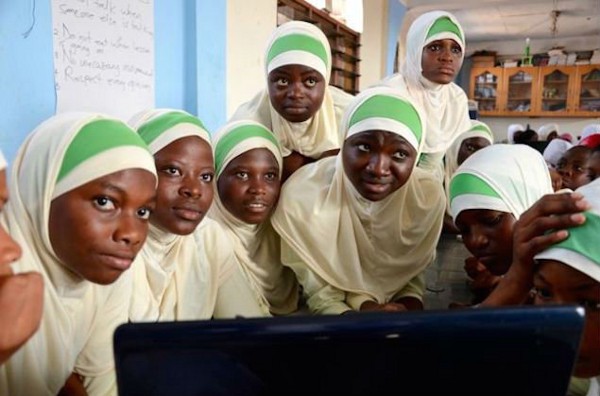
For example, the Information and Communications Technology (ICT) and Coding program is attracting more girls to the center. Many girls want to learn ICT and coding skills, but the challenge here is that there aren’t enough computers for them. We only have four laptops that many have to crowd around, making it difficult for them to learn the practical aspect of the coding.
Our priority is to empower girls growing up in the slum communities through ICT and programming skills, and we welcome any help to achieve our mission.
FO: Was there anything prior to Achievers Ghana that focused on community-based tech education? Do you think you’ve inspired other similar initiatives since then?
AM: There is no other organization that aims to give girls the power to use technology. The only place that the girls hear about technology is at their various schools, and that is only in books–it’s only theory. Some have never used a desktop or laptop before. It is at the Achievers Ghana learning center that some of the girls start to have a feel for what real technology is.
If a girl child is seen in an internet cafe, that girl is seen by many as a deviant child. With Achievers Ghana’s ICT and Coding program, we intend to bridge the gender gap in ICT. Generally there are only a few women working as an engineer or technician in the Ghanaian ICT industry. If even the well-to-do community has little female representation in IT, how can we imagine that a girl in a deprived slum community will have that knowledge? Achievers Ghana is making sure that can actually happen.
FO: One of the things I find really beautiful about Achievers Ghana is that it feels like a family, as well as an educational initiative. What do you think helped that happen?
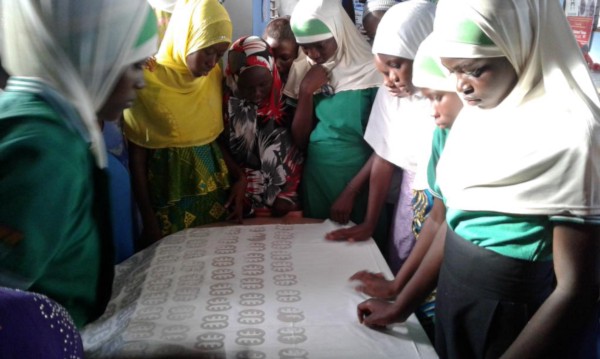
AM: Your findings are true. The girls have passed through so many social and cultural challenges which have crippled their potential. Now that they are realizing it, they developed a strong passion to fight it. They really love what they are doing.
Our mentoring program also helps to reshape their mindset. We have expats and tech role models [who] voluntarily come to motivate and entice them to see ICT as a field of choice in selecting a future career. In this light, the girls join forces and become like a family to defend their new found aspiration. Meeting with these girls is really amazing, as they have lots of talents that can be used to help their family out of poverty. They now see Achievers as their second parents who came to help them channel their hope to progress.
The name Achievers Ghana has become like a national anthem. It gets mentioned everywhere, in the schools and in the community.
We don’t just focus on teaching ICT skills. The students also perform dramas and poetry, teaching others about the difficulties girls face in their various communities. They have represented the community many times, discussing these issues on radio and national TV. Every day they meet to discuss the social issues affecting them. The students even have their own executives who help to run their affairs and make sure the vision and mission of Achievers Ghana is attained.
FO: It’s really great to hear about the girls giving what they learned back to the younger generation. What is your relationship like with the local community?
AM: The relationship is not bad. Some have grown to understand our aims and objectives, to give girls a voice. Still, there are many who think otherwise and will always ask, “Why a girl child?”
Some also think that I use the girls for my own personal gains. But after winning the Community Crusaders in the MTN Heroes of Change Award 2014, and with increasing publicity about what we do at Achievers Ghana, they begin to build confidence and are willing to give us their support. There are still some challenges from the view of some of the Arabic teachers. They are of the view that teaching the girls coding and ICT, and other related activities, is not Islamic.
FO: Throughout Africa, we’re seeing more tech hubs get established and grow in success. What’s your opinion on this trend and what do you think should be the focus?
AM: In Ghana, the proliferation of tech hubs is great, but this is only happening in the communities with all the needed facilities. You hardly ever find a tech hub in deprived communities, for example slums like ours. Also, most of the tech hubs are male-dominated, so still maintain the gender gap in ICT. This trend must be changed to have more girls in tech hubs, perhaps through sensitization programs to help female children to know the importance of ICT in the 21st century. Girls in deprived communities could be given more opportunities by creating ICT centers where their needs are prioritized.
FO: Do you think there’s enough government support of ICT education? What can be done to improve things?
AM: The government in Ghana is doing its best to support ICT education in the public schools–for instance, the government initiative to give public schools laptops is very encouraging.
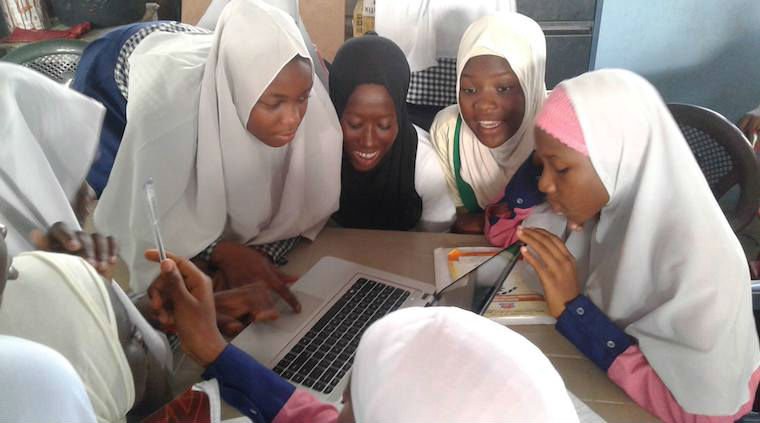
However, in slum communities, most of the schools are private and the majority of children in slums go to private schools. Private schools don’t get to enjoy this initiative, so we need to think about how they can also enjoy a slice of the national cake.
The plight of children in the urban slums is very severe compared to children in rural areas, according to the 2012 UNICEF report. The child in the urban slum is surrounded by all these social facilities but never has any access to them. The government must consider building more public schools and ICT centers in the slum communities to help reach more of the country’s children, as well as to develop interest in women and girls’ education.
FO: I suspect this is going to become more important as urban populations continue to exponentially rise.
Can I ask if you’ve always been interested in working in tech?
AM: I always had an interest in working in tech. The early stages of Achievers Ghana saw most of the girls learning how to use a computer. I remember, our first two laptop computers were donated in 2011 by Honorable Naseer Toure, MP for East Ayawaso Constituency. This made the love of computers and ICT more [interesting to] the girls. And we have had several desktop computers from individual donors, which facilitated Achievers Ghana to start teaching ICT. ICT has been part of Achievers since its inception, because we believe it will help shape the mindset and worldview of the girls.
FO: You mentioned that better representation of women in tech hubs would encourage girls who are interested in ICT. What about representation in the arts like books and movies? Were you interested in science fiction growing up?
AM: I’m really interested in science fiction, especially sci-fi movies–I believe that fiction has a form of reality, either now or in the future.
Fictional movies and music have definitely helped more young people get into technology. However, the platform has not been adequately used by these young people to help promote the intended benefit of technology. Technology can help to solve problems to the benefit of humanities, but sometimes it seems young people use technology negatively to harm society. After watching a fictional movie it can entice them to emulate and replicate reality in a negative way.
FO: I’m interested in exploring global perspectives on Afrofuturism, where a major drive is the idea that black people can and will be the driving creative forces of new futures, new technologies. Had you heard of Afrofuturism? Do you think this is an important idea, and if so, how can we help keep empowering ourselves to make it a reality?
AM: I had never heard of Afrofuturism until you contacted me–and I’m so happy to be part of it. The idea behind Afrofuturism is very important, as it will help expose the contribution of black people regarding technology. It will also inspire and motivate others to read and become change makers through technology.
FO: Do you think that Afrofuturism can be made relevant to modern Ghanaians?
AM: Absolutely. The world is a global village now through technology–technology is also a means of bringing individuals from far and near [together] for a common purpose. The idea behind Afrofuturism will help the modern Ghanaian to be well informed about the importance of technology and the contributions made by other black people outside their territory. I think this will help motivate them to take techology very seriously and emulate others to help solve the problem of black communities.
FO: Thank you so much for joining us, Amadu. I hope 2016 sees Achievers Ghana keep going from strength to strength!
If you’re interested in supporting the work of Achievers Ghana, you can find more information here, or contact the organization by email. You can also follow its account @AchieversGhana for more updates.
Links of interest:

How We Get To Next was a magazine that explored the future of science, technology, and culture from 2014 to 2019. This article is part of our collection of conversations about Afrofuturism, curated and edited by Florence Okoye of Afrofutures UK. Click the logo to read more.

